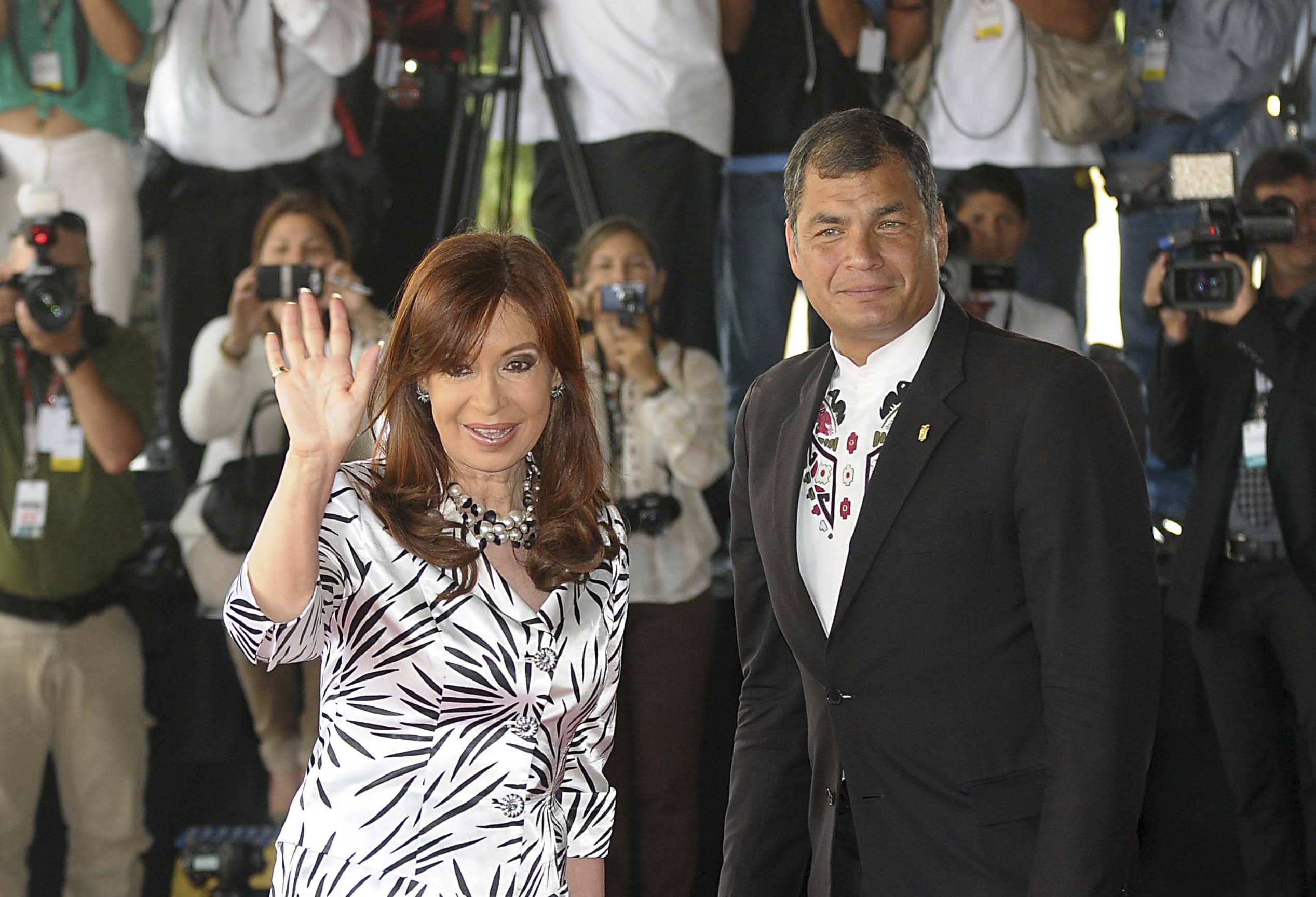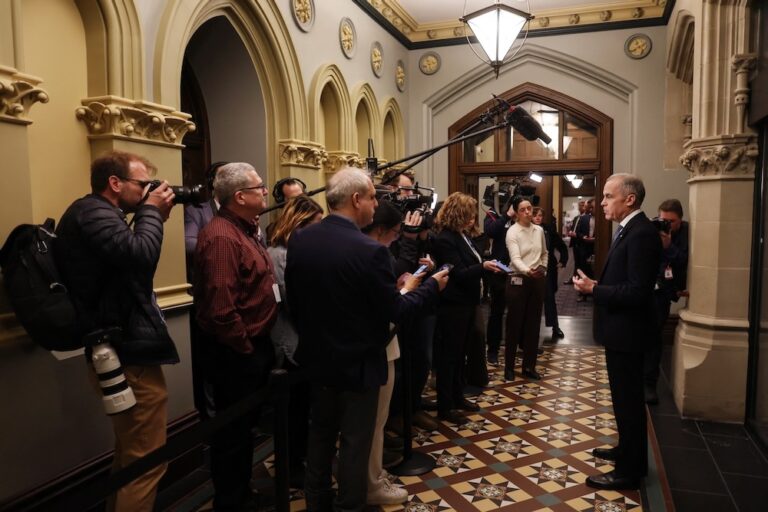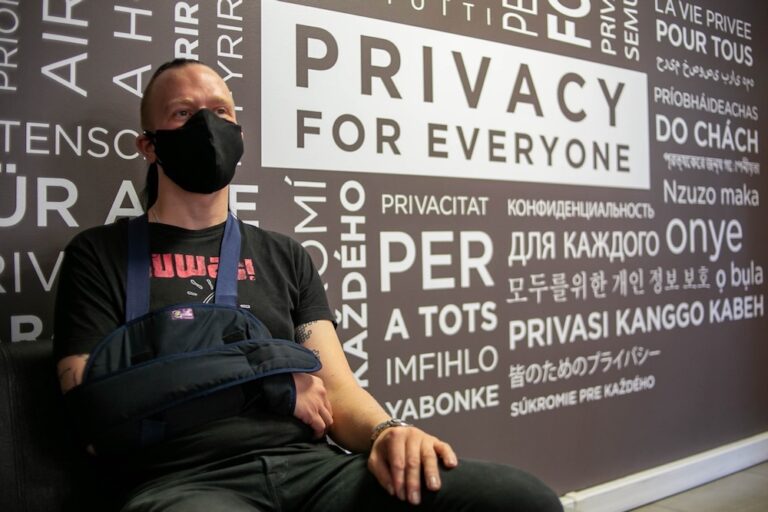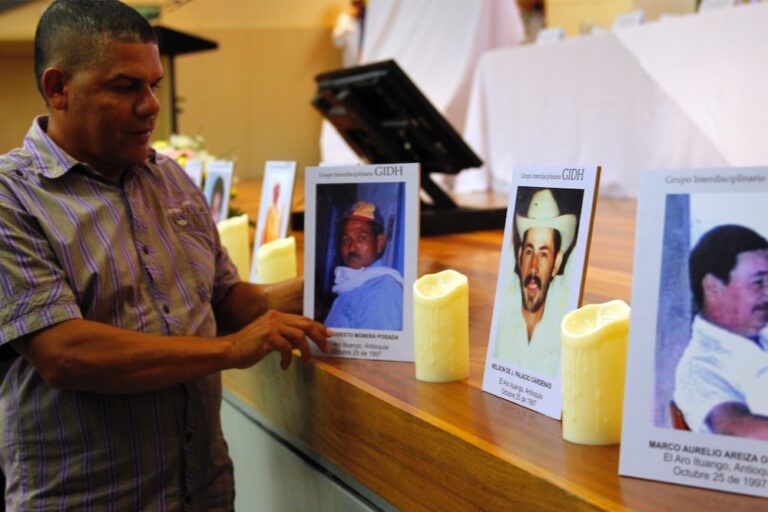At an event in Washington organised by the IACHR Special Rapporteur for Freedom of Expression participants discussed the risks and benefits of communications laws.
Is the best communication law no communication law at all? The answer, clearly, is no. Regulation is necessary. The question is the kind and degree of regulation, and how it should be implemented. This was the starting point for discussions on the challenges to freedom of expression in Latin America that took place in Washington DC (USA) on 11 February 2015, organized by the Inter-American Commission on Human Rights (IACHR) and Inter-American Dialogue.
Edison Lanza, the IACHR’s Special Rapporteur for Freedom of Expression, explained to IFEX the three-fold objectives for the meeting, which brought together specialists on the issue: to present the work of the rapporteur’s office, to discuss freedom of expression challenges, and to bring forward recommendations, particularly those pertaining to the development and implementation of communication laws. The event included a debate on the impact of the Internet on freedom of expression and challenges relating to Internet governance.
Legislating for Pluralism and Diversity
“It is now accepted that regulation is necessary, but it wasn’t always so,” said Santiago Cantón, executive director of the Robert F. Kennedy Center for Justice and Human Rights and the IACHR’s first Special Rapporteur for Freedom of Expression (1998-2001). Indeed, as Edison Lanza noted, the process of modernising communications legislation began just a few years ago in Latin America. He added, however, that it has now become an important discussion, “fundamental for the promotion of pluralism and media diversity as a means to advance democracy.”
Guilherme Canela, Adviser in Communication and Information at UNESCO‘s regional office in Montevideo (Uruguay), noted that “diversity and pluralism are the central questions.” He emphasized that it is not just about the concentration of media property, but also the concentration of power– and that it is a question not only of imparting information but also of seeking and receiving information, the three pillars outlined in Article 19 of the Universal Declaration of Human Rights. Moreover, “without pluralism and diversity, there is no citizen participation and, as such, no democracy,” said former United Nations (UN) freedom of expression rapporteur Frank La Rue, who currently works at the Robert F. Kennedy Center for Justice and Human Rights office in Florence (Italy).
There are no “magic recipes” to follow when attempting to regulate communications and media outlets, Canela said, although he did detail a number of essential ingredients, including guaranteeing a participatory legislative process, promoting self-regulation, regulating government advertising, supporting truly public media outlets, encouraging high-quality journalism, strengthening civil society in its ability to monitor communications processes and, finally, having an independent regulatory agency.
Argentina, Ecuador and Uruguay: the first communication laws
In recent years, Argentina, Ecuador and Uruguay have approved communication laws, and legislative debates are open in Brazil, Chile, Colombia, Costa Rica and Peru. During the event in Washington, a number of participants noted that the recently approved audiovisual law in Uruguay could be a good model for other countries.
For Gustavo Gómez, the director of Observacom (Uruguay), however, it should serve not so much as a “model” but as a “reference” that could be adapted to each specific context. In Gómez’s opinion, the most interesting aspect of the law was its participatory design, which included government representatives, media outlets, civil society and academia.
He noted to IFEX that there were aspects where it was difficult to achieve consensus, principally issues relating to limits on media concentration and allocation of the broadcast spectrum. Nevertheless, he believes that the law is an achievement that guarantees the co-existence of public, private and community media outlets under the supervision of an independent regulatory agency.
Unlike the Uruguayan law, the Ecuadoran law was not achieved by consensus, according to César Ricaurte, executive director of Fundamedios (Ecuador). On paper, the Ecuadoran law promotes democratisation of media outlets, but Ricaurte said that significant gaps in the law have allowed the Ecuadoran government to control and censor information, journalists and media outlets. He gave as examples imposing ethical standards on journalists and obliging them to cover issues that are “of public interest” according to the government’s own criteria. “On one hand they provide guarantees, and on the other hand they punish,” said Ricaurte.
Meanwhile, Damián Loreti, lawyer and professor at the University of Buenos Aires (UBA), approved of the fact that in drafting the law in Argentina, requests made by civil society, detailed in the document 21 Basic Points for the Right to Communication, were taken into consideration.
Colombia and Guatemala, work remains to be done
According to Carlos Cortés, who was representing IFEX-ALC at the event, in Colombia they continue to think that “the best law is one that does not exist,” and this lack of regulation is reflected in the high degree of media concentration in the country. Despite this, Cortés expressed optimism because debate on the issue is opening up, due to a growth in media outlets thanks to the Internet. He also noted that peace talks between the government and guerrilla groups have brought to the forefront the issues of access to media and distribution of the broadcast spectrum.
For his part, La Rue characterised the situation in Guatemala as “tragic”, due to the lack of media pluralism and diversity in a country where many ethnic groups live together but are not represented. He gave the example of parliament’s decision to create a Mayan television station without providing it with an operating budget.
On the horizon: Internet regulation?
The meeting provided space for a discussion of the Internet’s impact on freedom of expression, a pertinent subject given that the next Internet Governance Forum (IGF) will be taking place in Latin America. Eduardo Bertoni, director of the Centre for Studies on Freedom of Expression and Access to Information (CELE) at the University of Palermo (Argentina), sees this as a not-to-be-missed opportunity with the potential to bring to the fore issues relating to the Internet in Latin America. In his opinion, this is an opportune moment to discuss how to regulate the Internet, particularly with respect to net neutrality, the role of intermediaries, the “right to be forgotten”, Internet access, censorship and content blocking, as well as the question of anonymity.
According to Carolina Botero, director of the Karisma Foundation‘s Law, Internet and Society Group, when it comes to regulating the Internet, civil society must be alert to ensure that commercial interests are not placed above human rights. The challenge and urgency of the matter, in Botero’s opinion, is for civil society to learn and understand the complexity of the Internet. They must ensure that related legislation is developed for the benefit of individuals, with special attention given to issues of gender and vulnerable groups. In conclusion, Paula Martins, from ARTICLE 19 Brazil, noted that all regulations should be developed within a human rights framework.
(Please note this has been translated from the original Spanish)
Silvia Chocarro Marcesse is a journalist and freedom of expression consultant @silviachocarro



